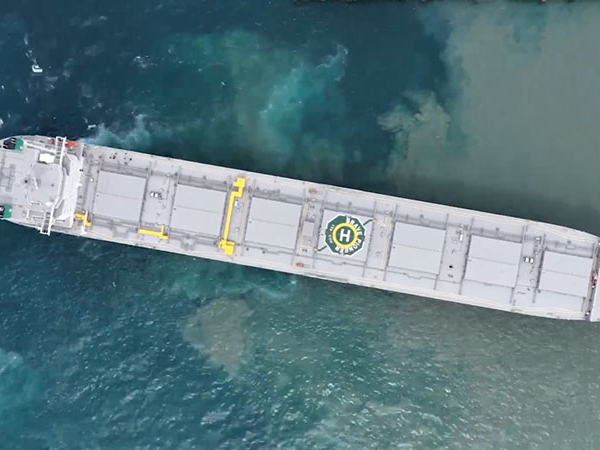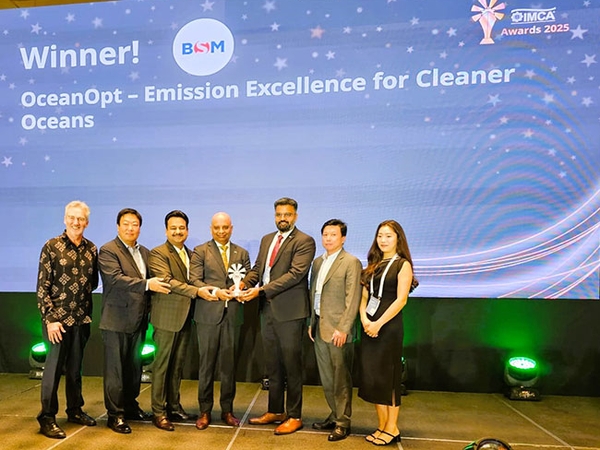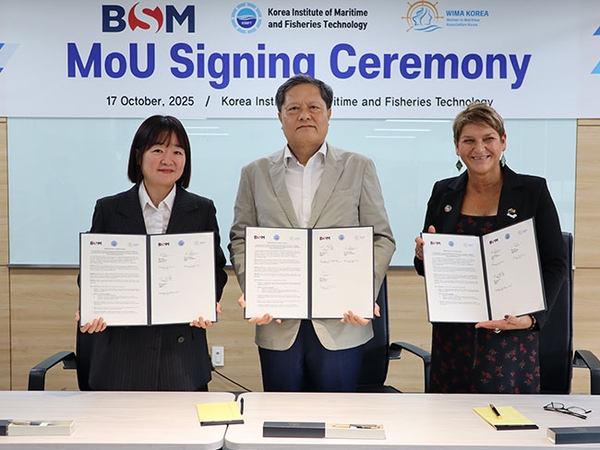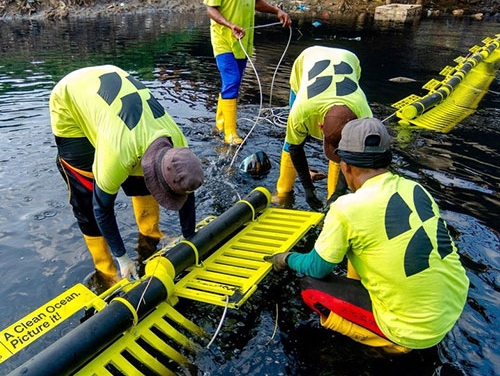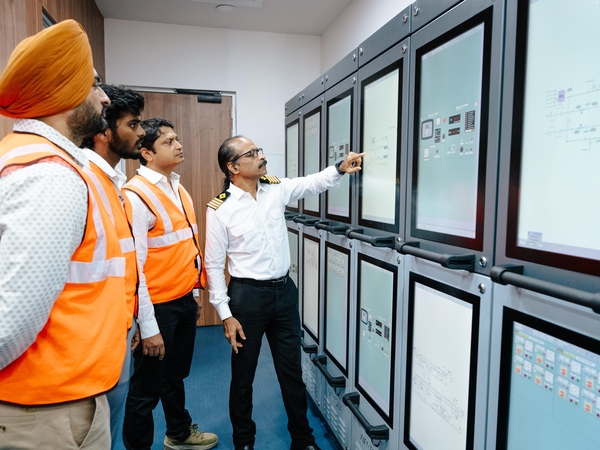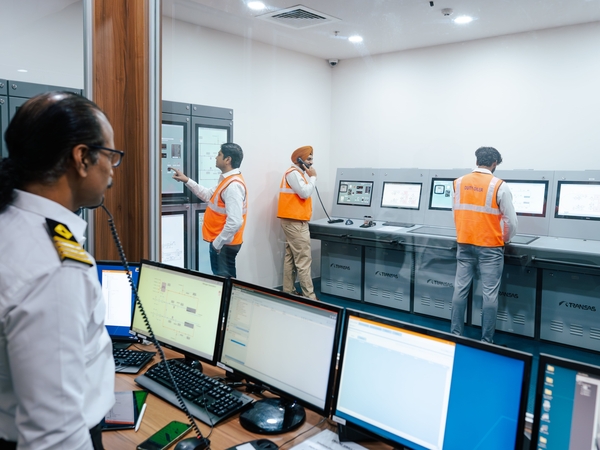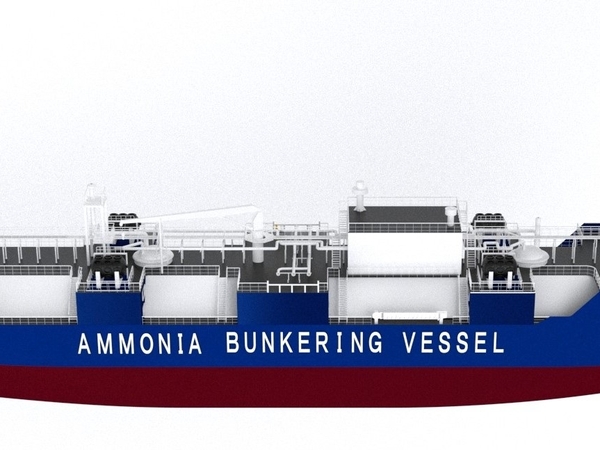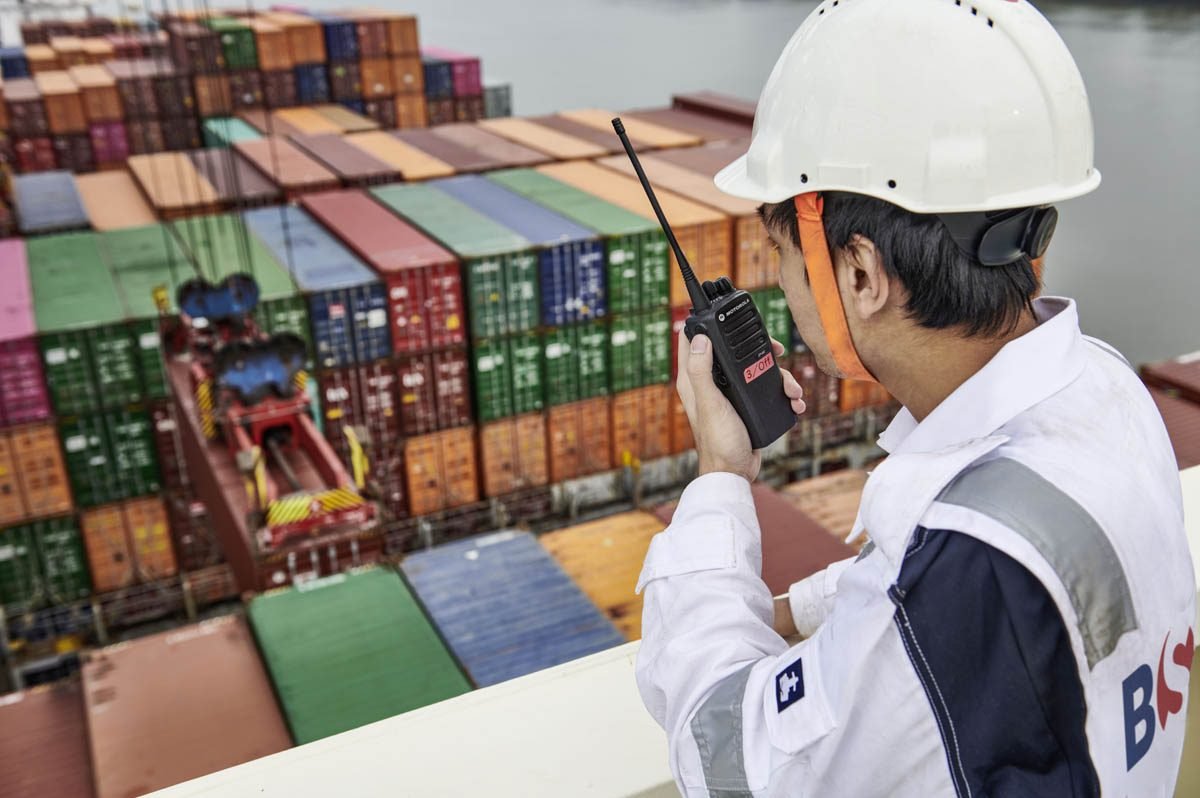
The Loss Prevention, Safety and Quality department can often be seen as the feared enforcer of international rules and regulations. But as Nicholas Rich, LPSQ Manager at BSM's offices in Cyprus, contends, its real role is to focus on the positives rather than the negatives and help the company and its staff continue to get things right.
"Fundamentally, we are here to help and support all our colleagues, both ashore and at sea, to operate and manage their day-to-day business in the safest way possible and to the highest standards possible. We are a resource and we have access to a great deal of information, so we are likely to have answers to their questions. In my view it is all about support, encouragement and development."
This comment by Nicholas Rich goes some way to emphasise the supportive role a professionally-functioning LPSQ department can play within a highly diversified and international company like BSM.
"We are often viewed in a negative light where our job is seen to investigate when something is going wrong or has gone wrong. But in actual fact the whole reason behind an audit process, such as for ISO accreditation or to comply with the ISM Code, is to seek areas of compliance not areas of non-compliance," he said.
"The whole objective is to prevent loss and to promote best practice and we are there to help achieve that. While loss prevention, safety and quality may be written on the sign above our door, it is in the operating ethos of everyone working within the company. What we are there to do is to give a better understanding of what procedures may be in place and how they should be followed.
"So we are there to support everyone from individuals or departments to particular ships or entire management offices understand that the company has procedures they need to follow. These procedures embody industry best practice and are often driven by the coming into force, or amendments to already existing, international regulations and conventions."
It is the responsibility of the department to develop new procedures to meet the demands of new legislation, a task Mr Rich admits can be testing when you consider the amount of new legislation coming onto the statute books almost every year. "We assess what the new regulation demands and how we as a company can best meet those demands while still being able to operate effectively and safely with the minimum impact on operations.
"We have to adapt presentation of the new legislation so it can be implemented in the right way within the company as simply and effectively as we can," he said.
The $64,000 question of course, is how does all of this happen?
Nicholas Rich again: "Quite often with the larger pieces of legislation, there is a requirement to produce a manual. We look at this in-house, and we consider what other industry players are doing in the same field: this helps us decide how best BSM can comply. Once that is done and we have the templates in place, we can start liaising with the management offices who, in turn, liaise with the ships, to look at developing a company, office or ship specific, variant of the manual. We will also look at a training programme to put into place to train our personnel working on our ships. We also need to train seafarers who will call into our crew service centres and management offices before they go onboard ship as well as training people in the offices themselves. It is all about making sure we initially comply, and continue to comply in the future," he said.
And while it is complying with the demands of global maritime regulation, BSM also sets its own key performance indicators in areas where it wants to continually hit high standards, notably eradicating personal injury, reducing serious accidents and avoiding pollution. "Many people think it is the responsibility of the LPSQ Department to reduce accidents but the entire company will become involved in all of these areas. If for instance we see port state control detentions suddenly appearing as one of our KPIs, we will spearhead a response to the actions that need to be taken to ensure the detentions don't happen again but every other department in the company is also involved in doing their bit to ensure this happens.
"Encouragement is a big element of what we do and we see our role as concentrating on positive activities not negative activities. They represent opportunities where we can identify areas to improve. But often the only way we can find that out is by analysing what has gone wrong. But the whole process and purposes is to see what we are doing right and how can we improve," he said.
As Mr Rich stressed, there has to be an element of follow-up to ensure that the procedures have been met and that the loss prevention, safety and quality targets have been met.
"The actual mechanism to achieve this and the variety of things that need to be followed up, is quite considerable. It is a huge task and it is all about closing the loop if we are to actually meet our targets to manage ships to the best of our ability and ultimately to prevent loss," he concluded.
